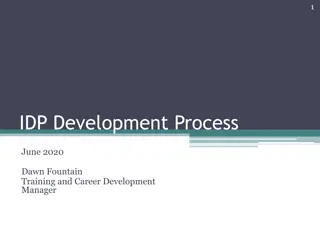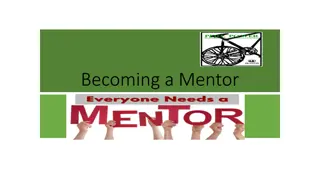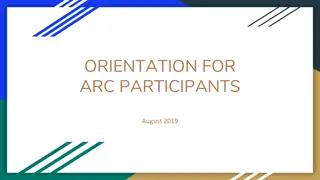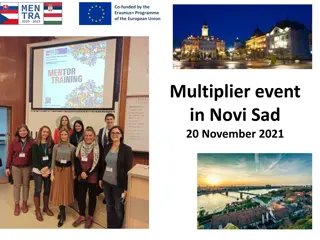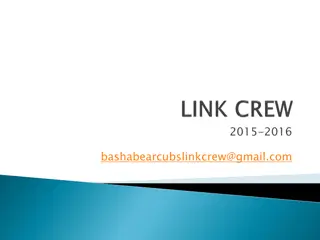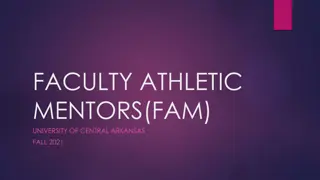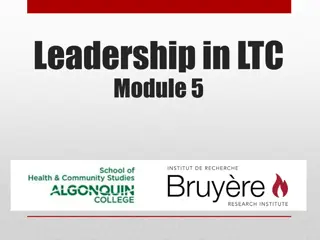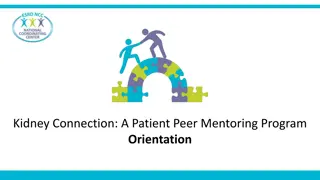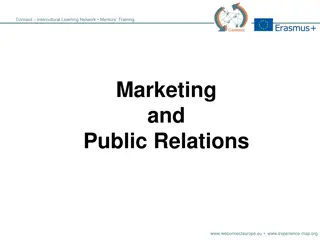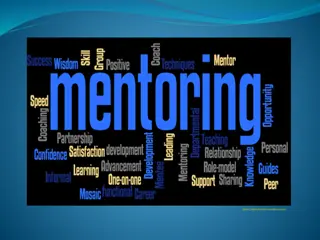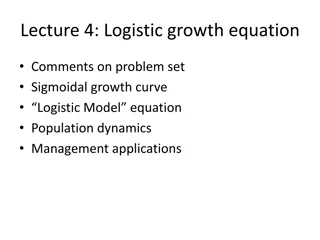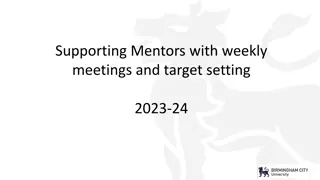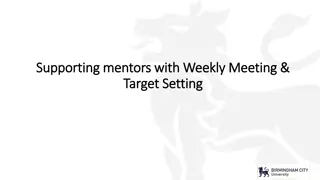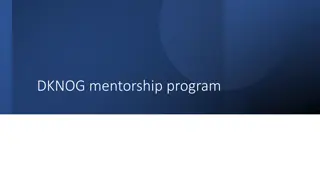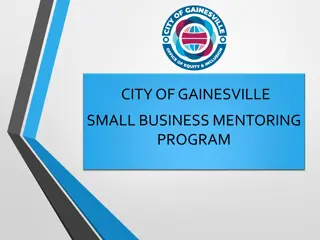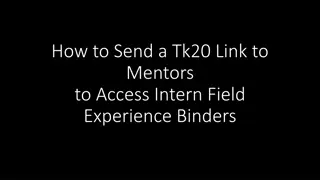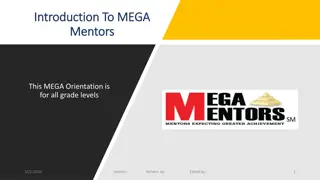The Importance of Mentors in Personal Growth
Successful individuals often credit their achievements to mentors who provide guidance, share valuable insights, and introduce them to key contacts. Mentors play the role of counselors, teachers, and supporters who help navigate challenges and capitalize on opportunities. Building natural relationships with mentors can lead to long-term positive impacts on personal and professional development.
Download Presentation

Please find below an Image/Link to download the presentation.
The content on the website is provided AS IS for your information and personal use only. It may not be sold, licensed, or shared on other websites without obtaining consent from the author.If you encounter any issues during the download, it is possible that the publisher has removed the file from their server.
You are allowed to download the files provided on this website for personal or commercial use, subject to the condition that they are used lawfully. All files are the property of their respective owners.
The content on the website is provided AS IS for your information and personal use only. It may not be sold, licensed, or shared on other websites without obtaining consent from the author.
E N D
Presentation Transcript
Warm Up: Making Connections *Answer in complete sentences. 1. Describe the role of a mentor.
Making Connections One thing successful people have had throughout their lives is help from others (Mentor). A mentor means, Counselor or Teacher. Neighbors, coaches, parents, co-workers, and others can be a mentor as well. Mentors give advice and, show you the ropes. Mentors save you time! They can give you advice to help you along your way in other words LEARN FROM THEIR MISTAKES AND SUCCESSES!
Making Connections Continued Mentors can introduce you to people in the community or other successful people in the field. Remember .in life it sometimes is not WHAT you know, but WHO you know! Finally, mentors are there for your successes and failures.
Dont Overstay Your Welcome It s never a good idea or proper behavior to be a pest or to force your attentions on anyone. Most people are willing to answer a question or offer information. Follow up with a thank you note. Perhaps a mentor relationship will develop or not. Again, don t push it!
It Just Comes Natural The best mentor relationships develop naturally. If there is no friendship or rapport between the two people, the association won t last.
Making Connections: Activity 263 Read and answer the questions on Activity 263.
Before the Interview Do your homework! Do some research! Know where you are going. Arrive 5 to 15 minutes early. Dress for success. Body Language -Power Poses -17 mins.
The Start of the Interview Inform the secretary that you have an interview, whom it s with, and the time. Look straight into the interviewers eyes, shake hand firmly, introduce yourself, and smile! Be confident and wait until they offer you a seat. Be positive in communication. When all else fails: SMILE!
Dont Fidget with rings, pens, ties, change, or other things in reach. Put your hands on items on the interviewers desk. Smoke. Chew gum. Curse. Slouch.
During the Interview Always face forward with good posture o Lean in rather than away Stay positive with your attitude and answers. Don t be a know it all! Be honest with your answers (even if you don t know the answer!) If you don t understand, ask the interviewer to explain. Organize thought before thinking. It s ok to pause. BEHAVIORAL INTERVIEWS: past performance is the best predictor of future performance.
Dont Emphasize your weaknesses. Draw attention to negative attributes such as poor attendance or being late. Criticize former employers or school personnel. Discuss personal issues. Discuss salary or benefitsuntil they bring it up.
The End of the Interview Ask the job-related questions you prepared for the interview. You may be offered the job immediately. Ask specific questions about salary, benefits, and hours. If you are told you will be contacted, ask how long it will be. Thank the person for the interview and considering you as a potential employee or student. Shake hands firmly.
The Follow-Up Send the interviewer a thank you letters soon after the interview. Call the company or college about a week after the interview to find out if they have made a decision.
Why People are NOT Hired Poor personal appearance. Inability to communicate clearly, poor voice, and grammar. Lack of planning for career. Lack of enthusiasm. Condemning past employer. Failure to look in the eye. Limp handshake. Late. Does not thank interviewer for time. Asks no questions. Lack of knowledge of company.
How are you Rated During the Interview Appearance 25% Attitude 40% Job Qualifications 10 % Communication Skills 25 %
The Job Interview: Activity 259 Answer the questions on Activity 259. Remember to answer the questions so that they put you in the best light!
Now, Lets Practice Directions: 1. 2. 3. I will divide you into groups of four. You will be given ONE interview question. Each of you need to come up with a response to the questions, share your responses with each other to receive feedback. One person from the group will be selected to participate in the mock interview. The entire groups grade will be based on that students response. 4. 5.





